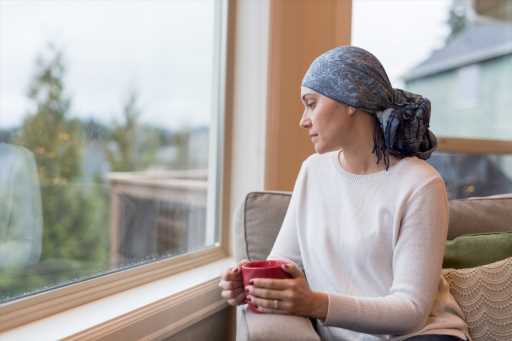Nearly 80 percent of breast cancer patients in certain countries face immense financial strain after going through treatment, according to an eye-opening new study.
The report, published in JAMA Network Open, explored how treatment costs affect people with breast cancer, the second most common cancer among Americans who are assigned female at birth (AFAB). Researchers’ findings were staggering: A significant proportion of breast cancer patients globally are afflicted by “financial toxicity,” AKA financial strain brought on by the costs of necessary medical care.
To obtain these stats, researchers performed a meta-analysis of data from 34 previous articles on the topic published between 2008 and 2021. Twenty-four studies originated from high-income countries, such as the United States and Canada, while 10 came from low- or middle-income nations. The team defined financial toxicity as treatment-related financial difficulty, “trouble paying medical bills, or having to pay more for medical care than is affordable.”
Across the board, they found that breast cancer treatment was associated with “substantial financial toxicity” worldwide. It was most drastic for patients from low- and middle-income countries, 79 percent of whom experienced financial toxicity. (For context: In these countries, typical financial toxicity rates across all health conditions range from 6–12 percent.)
More than a third (35 percent) of patients from high-income countries also reported serious financial strain.
“Policies designed to offset the burden of direct medical and non-medical costs are required to improve the financial health of vulnerable patients with breast cancer,” researchers concluded.
As Forbes reported, these findings reflect the shockingly high costs of breast cancer treatments like chemotherapy and mastectomies. One report found that the average lifetime cost to treat breast cancer in the U.S. can reach up to $100,000 per patient. That price tag is even higher among patients who are diagnosed young or have metastatic breast cancer.
Financial barriers are also a problem in the preventative care space. According to a study published last December, one in five people is likely to skip out on a follow-up screening after an abnormal mammogram if there is a costly deductible involved.
According the Centers for Disease Control and Prevention (CDC), breast cancer affects about 264,000 AFAB people each year. Anyone can get it, but the disease is most commonly diagnosed in women and AFAB people who are older than 50, have dense breasts, have certain genetic mutations, and/or have a family history of breast cancer. As such, the CDC recommends routine preventative screenings, including mammograms and breast ultrasounds for people with dense breasts.
Check out these products breast cancer patients and survivors can actually use:

Source: Read Full Article

